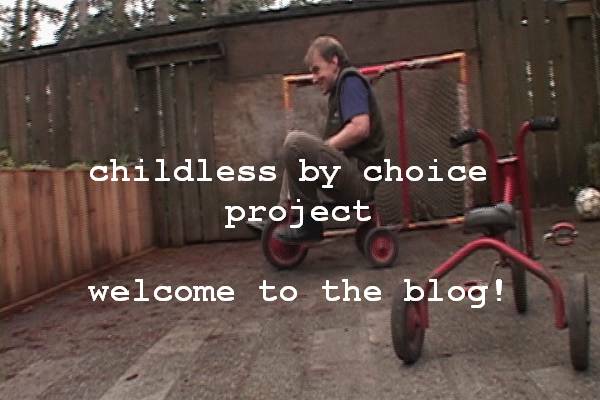
I granted an interview to Madison Magazine in Australia last year and they published a very good article in March posing the question: Why does society vilify women who choose not to have children?
There were many great quotes from women who had been harangued and criticized because of their choice to remain childfree and some interesting opinions from a sexologist who had made the suggestion that lack of desire for children might be inherited and have something to do with hormone levels.
This is what the sexologist Dr. Frances Quirk suggested may be happening, as summarized by Alexandra Carlton, the author of this article:
We’re equipped with a physiological arsenal of drives, urges, hormones and synapses that will us, continuously, to make babies. But just like someone can be born without perfect hearing or eyesight, or be good or poor at athletics or maths or drawing, some people are born with lower levels of certain hormones. In women, it’s thought low oestrogen levels or high testosterone levels could result in a diminished to entirely eradicated desire to have babies.
Of course, it’s not all about hormones. Dr Quirk suggests that for nature to influence our behavior, there needs to be a fair amount of nurture at work, too. A person’s upbringing, experiences or current situation will generally play a part in controlling their desire to have, or not have, children. Two of the women Madison spoke to for this story – Annabel and 31-year-old children’s model agent Nicola Allan – admitted that their own mothers had confessed that kids hadn’t exactly been in their grand plans. “My mum always said, ‘If I had my time again, I don’t think I’d have kids,’” relates Allan, who says she personally adores being around children – something she does every day through her work – but has no urge to have any of her own. “I don’t take what she said as an insult. She loves us to death and she’s a great mum. But I can see where she’s coming from. I’ve known from the age of 14 that I didn’t want kids either.”
Dr Quirk says Allan’s attitude may be an indicator that she’s inherited a low oestrogen level from her mother; as a result, each of them could harbour a low or non-existent desire to bear children. Or, “the daughter may be having a psychological reaction against being told that her mother didn’t want her” and doesn’t want to put another child through that feeling of rejection.
But most people who identify as childless by choice will refute the notion that there’s some subconscious, must-get-to-the-bottom-of-this, someone-call-Dr-Phil abnormality behind their decision not to reproduce. “People always think there’s some deep-seated reason for why I don’t want children,” says Jenifur Wale, a 34-year-old model and art teacher from Melbourne. “But it’s really not that complicated. I have a wonderful family. I love kids, especially my nieces. I have had meaningful relationships with men. It’s just that having a child has never been for me. I feel really fulfilled; I don’t need a sense of purpose and I’m not looking for something to fill my time. And I feel loved, so I don’t need a child to give that to me.”
So is it nature, nurture, hormones? What do you think?






